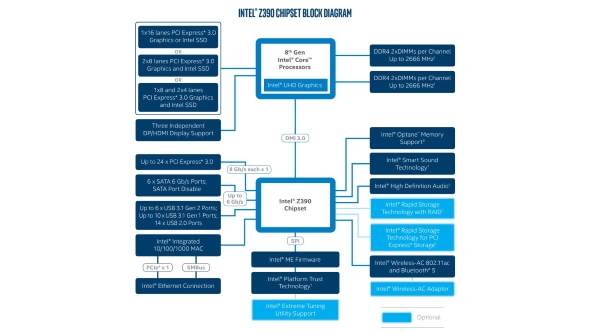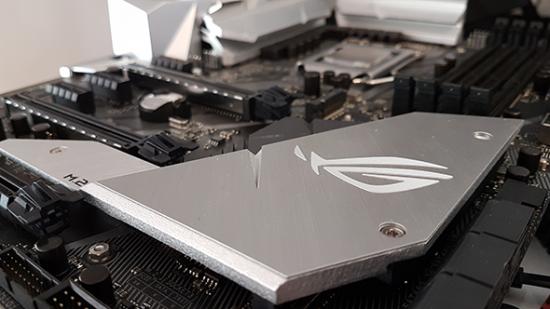Only a short time after Intel confirmed the Z390 chipset’s existence, the company is supposedly scrapping it – potentially opting to rename the current Z370 chipset to Z390 instead. Built on the 14nm process node, the Z390 chipset was supposedly set to offer native USB 3.1 gen 2 support and support for an upcoming eight-core Coffee Lake CPU.
The move to 14nm transistor tech with the Z390 chipset would’ve complete a 14nm lineup from budget Coffee Lake motherboards all the way up to the enthusiast SKUs. Currently, the Z370 chipset rules the roost, however, due to its earlier release, this chipset still runs on the 22nm process node – as did its predecessor, the Z270.
Looking for a hexacore CPU upgrade? Here are the best Intel gaming motherboards on the market.
The rumour comes from Benchlife, who was reportedly informed of the change. The source of the insider info has not been confirmed, so take this all with a heap of salt for the time being. Intel’s ‘Z390 chipset brief’ webpage – that confirmed the upcoming motherboard – has since been taken down, too.
While this rumour is unconfirmed as of yet, the move could be fiscally-sound for Intel. Only shortly after the Z390 announcement, Intel was reportedly halting production of the H310 chipset due to a lack of space within its overcrowded 14nm fab. H310, H370, B360, and Q370 motherboards are all built upon the 14nm process, while only Z370 motherboards still utilise 22nm.

Intel’s 14nm fabs are expected to be running at full capacity due to high-demand for the long-lasting 14nm node. Chipsets also tend to run one process node behind the CPUs themselves, however, potentially due to Intel’s struggle to produce the 10nm node at any meaningful volume with high yields, chipset transistor densities have parity with the CPUs they run alongside.
Manufacturing of the budget chipset was subsequently expected to restart in July, but the news already had us questioning what this meant for production of Intel’s Z390 chipset after stretching demand from Intel’s 14nm fabs even further.
This tardy motherboard was also on the list of potential suspects to be announced at this year’s Computex tech show in Taipei, but it never showed. Assumedly, Intel still plan on launching the Z390 in some form before the end of September – roughly when an Intel Coffee Lake eight-core CPU is expected to launch.
Intel’s latest chipset wasn’t expected to bring all that much different over the previous Z370 stand-in. Native USB 3.1 gen 2 support was pretty much the whole package. As such, motherboards fitted with the latest tech weren’t set to be all that convincing to gamers – as this functionality was already on offer through the use of third-party ASMedia controllers – and potentially now even less so.
